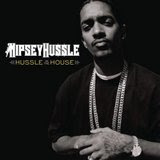When it comes to budgeting, paying your bills and paying off bad debts, it is important to realize what your priorities should be. This will vary from person to person slightly, but there is a definite order to what bills you should pay no matter what. After that the order may shift depending on your priorities and your situation.
Priority One: Cover Your Necessities
Your first priority should be shelter, food and electricity/heat. These are the basics that an individual needs to live. Within these categories it is possible to overspend. Your housing should not be more than twenty five percent of your salary. If it is then you may need to sell your house and buy a new one, or you may need to increase your income. You can decide which way you want to deal with the situation. Similarly you should do all you can to keep your grocery bill at a reasonable level. Reasonable may have different limits if you are deeply in debt and behind on your bills as compared to being debt free. Do not starve, but you can work to lower your grocery bill. Also you should try to lower utility costs as much as possible.
Priority Two: Get Out of Debt and Save Money
After you have met your basic needs your next priority should be saving money or getting out of debt. It does not make a lot of sense to put a lot of money into savings if you are paying more in interest on your debts. You should be at least making minimum payments on all your debts before you spend money on other items in your budget. You should strive to put between $200.00 to $500.00 extra towards your debt each month if at all possible. If you are debt free, you should be saving at least ten percent of your income each month. You should also try to increase your retirement savings to fifteen percent of your income.
Priority Three: Spend Your Money Your Way
Deciding on the remaining priorities in your budget after this is completely up to you. You may decide that the gym membership is more important than saving for a big screen television or that shopping for clothes is more fun than going out to the movies. The key to the rest of your spending is to not overspend. You can divide your eating out, clothing and entertainment categories is a variety of ways that suit you and your personality. This may change over time as your priorities change throughout your life.
Top Priority: Retirement
Retirement savings should not be last, in your priorities. You should contribute up to your employer’s match until you are debt free. If you do not have an employer’s match contribute about five percent of your income each month to retirement. It will not greatly lower your take home pay, and you should not stop contributing. Once you are debt free, then you should work on raising your contributions to fifteen percent on your income. This can include any employer’s match that you receive. Then you should base your budget around the new take home amount that you have.
Monday, May 25, 2009
Saturday, May 23, 2009
Money & Music Presents - Check out Forbes Report On CEO "Big Face Records" - "David Banner"

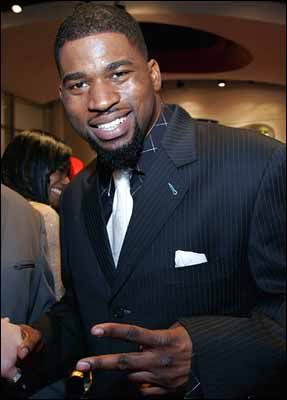
"DAVID BANNER - CEO BIG FACE RECORDS"
Also check out "Money Mike" on tomorrows conference call where his topic will be - "What's Your Priorities"in the "Cool V & Money Mike's" - "Money & Music Segment"
(Also Entertainment Lawyer Gizelle talks about 360 Record Deals)
MEMORIAL MIX WEEKEND PRIORITES
Asher Roth feat Cee Lo "Be By Myself"
Melanie Fiona "Give It To Me Right"
Myko feat Yung Joc "Give It To You"
Akon "Be With You"
TO DOWNLOAD ALL SRC/LOUD RECORDS PRIORITIES SEE - www.mediafire.com/srcrecords
In Stores Now:
Asher Roth "Asleep In The Bread Aisle"
Akon "Freedom"
Shontelle "Shontelligence"
David Banner "The Greatest Story Ever Told"
Cleve
SRC/Universal (Radio Promotions)
AOL I/M: Shuhefner
www.myspace.com/iceshuler
www.Loud.com
Labels:
COOL V,
david banner,
Forbes,
MONEY MIKE
Monday, May 18, 2009
Money & Music Inc - Says "Know Your Budget!!"

For most people, the word “budget” conjures up thoughts of penny-pinching and the unpleasant task of crunching numbers. This couldn’t be further from the truth. A budget is at the cornerstone of a solid financial foundation, regardless of your situation, and it isn’t that hard to do.
What is a Budget?
A budget is nothing more than a breakdown and plan of how much money you have coming in and where it goes. Could you imagine a business becoming successful if it didn’t keep track of its income and expenses? The same holds true when it comes to your personal finances. If you don’t know how much money you have coming in and where it goes, your road to financial success will be a difficult one.
The biggest fear that most people have when creating a budget is that they will need to suddenly cut back on all of the fun spending -- things like the occasional coffee or dinner out, movie night, or even the trip to grandma’s for the holidays. While you may find that you do need to cut some spending after putting together a budget, without actually sitting down and creating one, it is impossible to know what expenses need to be cut, if any.
Creating a budget may not sound like the most exciting thing in the world to do, but it is vital in keeping your financial house in order. Before you begin to create your budget it is important to realize that in order to be successful you have to provide as much detailed information as possible. Ultimately, the end result will be able to show where your money is coming from, how much is there and where it is all going.
Difficulty: Easy
Time Required: 5 minutes to 30 mins.
How?
Gather every financial statement you can. This includes bank statements, investment accounts, recent utility bills and any information regarding a source of income or expense. The key for this process is to create a monthly average so the more information you can dig up the better.
Record all of your sources of income. If you are self-employed or have any outside sources of income be sure to record these as well. If your income is in the form of a regular paycheck where taxes are automatically deducted then using the net income, or take home pay, amount is fine. Record this total income as a monthly amount.
Create a list of monthly expenses. Write down a list of all the expected expenses you plan on incurring over the course of a month. This includes a mortgage payment, car payments, auto insurance, groceries, utilities, entertainment, dry cleaning, auto insurance, retirement or college savings and essentially everything you spend money on.
Break expenses into two categories: fixed and variable. Fixed expenses are those that stay relatively the same each month and are required parts of your way of living. They included expenses such as your mortgage or rent, car payments, cable and/or internet service, trash pickup, credit card payments and so on. These expenses for the most part are essential yet not likely to change in the budget.
Variable expenses are the type that will change from month to month and include items such as groceries, gasoline, entertainment, eating out and gifts to name a few. This category will be important when making adjustments.
Total your monthly income and monthly expenses. If your end result shows more income than expenses you are off to a good start. This means you can prioritize this excess to areas of your budget such as retirement savings or paying more on credit cards to eliminate that debt faster. If you are showing a higher expense column than income it means some changes will have to be made.
Make adjustments to expenses. If you have accurately identified and listed all of your expenses the ultimate goal would be to have your income and expense columns to be equal. This means all of your income is accounted for and budgeted for a specific expense.
If you are in a situation where expenses are higher than income you should look at your variable expenses to find areas to cut. Since these expenses are typically essential it should be easy to shave a few dollars in a few areas to bring you closer to your income.
Review your budget monthly and work with a trusted advisor to take advantage of the various financial tools available to increase your profitability while minimizing taxes. It is important to review your budget on a regular basis to make sure you are staying on track. After the first month take a minute to sit down and compare the actual expenses versus what you had created in the budget. This will show you where you did well and where you may need to improve.
Thursday, May 7, 2009
Money & Music Presents - Michael Jackson, sued again? Even an Icon needs financial guidance

Yet, we continue to see over and over, day in and day out, that no matter how high you rise, how much you think you are making, that the good ole saying, when building & creating wealth, will never go away. "Slow & Steady Wins the Race"
Unfortunately, that is not enough, attorneys, accountants, publicists, managers, family, friends, so-called advisors, once they see Fame & Fortune, you can better believe they will be closer to you than ever before, or should we say closer to your MONEY.
This article, along with the so many great athletes & artists, and just recently one of the greatest Boxers of All-Time, ironicly his name Floyd "Money" Mayweather, so often will rise so quickly, have so many people tugging at them to be in their "camp", that when it's all said and done, who were the ones that made the money, enough said!!
The time is now to join the movement, and let this article be a True Lesson to anyone who cares, Money & Music, was established so that no matter how High you Rise in your career, how much Money you make, that when it's all over and its time to look back on the Glory days, your Money/Wealth & most importantly LEGACY will be well in tack, and will be able to laugh at all those Who Tried to Break You.
Never forget, for every Las Vegas Built, their was a Myer Lansky, who made sure Financially, the foundation was laid & Success was inevitable, beyond the years of Stardom.
m$m
Michael Jackson's former publicist sues for $44 million
Thu May 7, 2009 11:23am LOS ANGELES (Reuters) - Michael Jackson's former publicist filed a $44 million lawsuit on Wednesday against the self-styled "King of Pop" for failing to pay her for her services.
Raymone Bain, who represented Jackson during his 2005 trial and acquittal on child sex abuse charges and later managed his business company, filed a breach of contract civil lawsuit against the singer in Washington, D.C.
She said in a statement that she had decided "with deep regret" to sue Jackson, describing him as someone "whom I have greatly admired and respected."
But she added; "Unfortunately, Mr. Jackson has elected not to honor the financial obligations of our contractual relationship, despite my numerous attempts to amicably resolve this matter. I am sincerely disappointed in Mr. Jackson's failure to honor his obligations."
Bain, who trained as a lawyer, saw Jackson through some of the most difficult moments in his career. She became his public voice for much of the lengthy child molestation trial in California, Jackson's subsequent stays in Bahrain and Ireland and the financial difficulties that resulted in the sale of his Neverland Valley ranch in California last year.
In 2006 she was appointed general manager of the Michael Jackson Company, which handles his business affairs.
She said in the lawsuit that she was hired as a spokeswoman in 2003 and that from 2006, she ran every aspect of Jackson's life including arranging housing, emergency refinancing, travel and security and scheduling meetings with record producers as the singer struggled to reestablish his music career.
Bain joins a long line of former advisers, accountants and friends who have sued Jackson in recent years over broken contracts and unpaid bills. Most of the lawsuits have been settled out of court.
A son of the king of Bahrain reached an out-of-court settlement with Jackson in November over allegations that the "Thriller" singer had reneged on a recording contract and owed him $7 million.
Jackson's current spokesman, Dr Tohme K. Tohme, did not return calls for comment.
After years of living as a virtual recluse, Jackson recently announced a run of 50 comeback concerts in London, starting in July. All have sold out.
Bain's lawsuit cited media reports which suggested the London concert deal, which she said she had helped to negotiate, was worth $400 million in revenue to Jackson.
Bain said Jackson had agreed to pay her 10 percent of any deals he entered into as a result of her help but had not done so. She asked for $44 million in damages, plus lawyers' fees.
(Editing by Bob Tourtellotte and Eric Walsh)
Wednesday, May 6, 2009
Money & Music - Ditch your bank for a credit union

PART II - http://www.youtube.com/watch?v=-rEW6ff3Zao
PART III - http://www.youtube.com/watch?v=RkQUVs-Kghg
You aren't bound to your bank. Learn why credit unions deliver big savings and better service for many consumers.
By Liz Pulliam Weston
A lot of you are really and truly sick of your banks.
You're sick of getting socked with fees, or tripped by hidden penalties, or earning lousy interest rates. You're tired of being treated like a nuisance rather than a customer. And yet you have little hope that the bank down the street is any better.
But who says you have to settle for a bank? Relief could be as close as the nearest credit union. Because so many people are fuzzy about the differences between banks and credit unions, I'll highlight the three most important distinctions:
Credit unions are member-owned. If you have an account at a credit union, you're a part owner in the enterprise. That may not entitle you to use the executive washroom -- your CU probably doesn't even have an executive washroom -- but you're likely to be seen as a person rather than as a "cost center."
Credit unions are not-for-profit. This status helps explain why interest rates tend to be significantly better, and fees fewer and smaller, at credit unions than at banks. Any profits credit unions do make are distributed as dividends to their members. Contrast that with banks, which continually invent new fees and policies to boost profits (and to pay those stunning executive salaries).
Banks hate -- hate -- credit unions. President Franklin D. Roosevelt signed the Federal Credit Union Act into law in 1934 to "promote thrift and thwart usury," and banks have been gunning for them pretty much ever since.
Because of their not-for-profit, cooperative structures, credit unions are exempted from most state and federal taxes. Banks have convinced themselves this is an unfair advantage and have spent a lot of effort, plus a fortune in lobbying fees, trying to legislate credit unions out of existence, or at least limit who can join. (I guess they thought the money was better spent there than on, say, improving their interest rates, reducing their fees or slashing their telephone hold times.)
Are you eligible? Almost certainly
Fortunately for you, banks have failed pretty miserably in their efforts to contain the competition. That's why the Credit Union National Association, the CUs' trade group, can brag that virtually everyone in the U.S. can belong to a credit union, thanks to where they live, where they work or the associations to which they belong.
The nation's credit unions count 90 million members, and their trade association estimates members save $8 billion a year thanks to better interest rates and reduced fees. Credit-union-issued credit cards, for example, tend not to have annual fees or to charge punitive interest rates for a single late payment. Most credit unions offer free checking accounts, and penalties for overdrawing those accounts tend to be lower: a $20 or $25 fee is typical, compared with up to $39 a pop charged by banks.
Yet many people discover the benefits of credit unions almost by accident, said Pat Keefe, a spokesman for the credit-union association. They'll join because they can get a decent rate on a car loan, say, and only gradually discover that the checking account has far fewer fees, the credit cards offer better interest rates, and the mortgages aren't bad, either.
Talk back: Are credit unions a better deal?
But you don't have to wait until you need a loan? Usually, finding a credit union is as easy as visiting your employer's human resources department. If you don't work or want more options, you can use the credit union search tool at JoinACU.org.
Based on where we live, where my husband works and our various other affiliations, the matchup tool spit out 31 local credit unions that might accept us. Some of them had fairly narrow membership requirements, like America's Christian Credit Union, which requires attendance at certain evangelical churches. Others were pretty darned broad, like Wescom Credit Union, which allows anyone who lives, works, worships or goes to school in Southern California to become a member.
Not perfect -- but not out to get you
Like bank deposits, money in credit unions is insured for at least $250,000 per account. Instead of the Federal Deposit Insurance Corp., which insures bank deposits, the coverage is provided by the National Credit Union Administration, but both agencies are backed by the full faith and credit of the federal government.
And you typically aren't restricted to using your own credit union's ATMs. Most CUs either offer fee-free access to a huge network of ATMs or reimburse your fees if you use other institutions' machines.
It's a stash of cash, but how much do you need? And why should this take priority over other savings goals?Are credit unions perfect? Of course not. No institution run by humans and their computers could possibly claim to satisfy everyone all the time. Occasionally I'll hear of a credit union that's instituted some silly fee, and too many have opted for "bounce protection" instead of real overdraft protection for their accounts. (For why the difference is important, read "Don't be duped by 'bounce protection.'")
But most of the folks I talk to who have abandoned banks for credit unions are thrilled they made the switch. If you're sick of your bank, why don't you follow suit?
Subscribe to:
Posts (Atom)


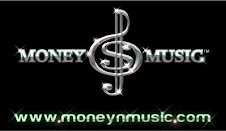.jpg)



.jpg)







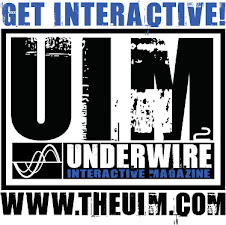.jpg)




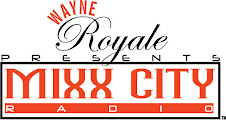.jpg)





.jpg)

.jpg)



















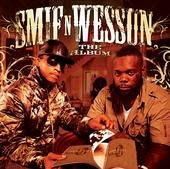



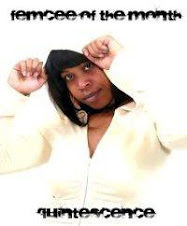














.jpg)
